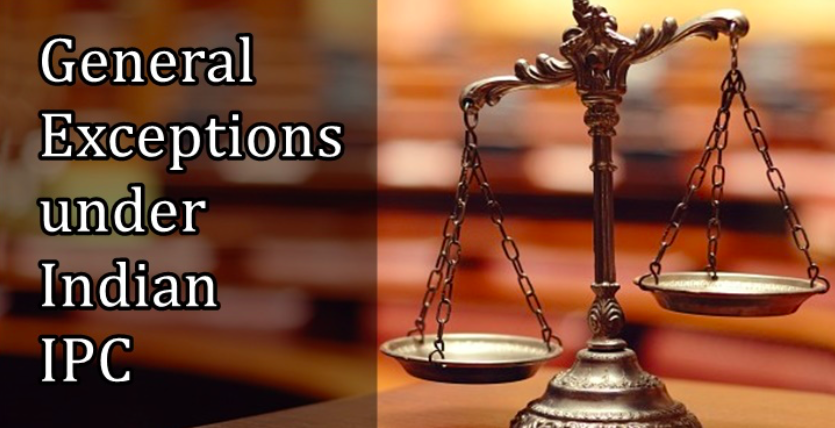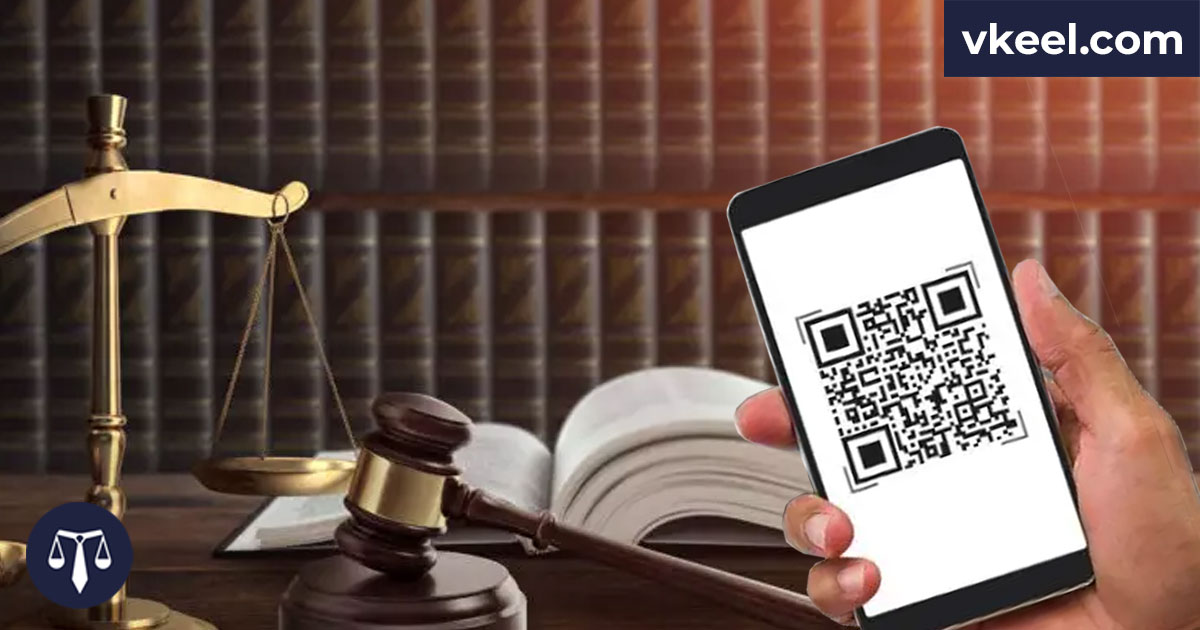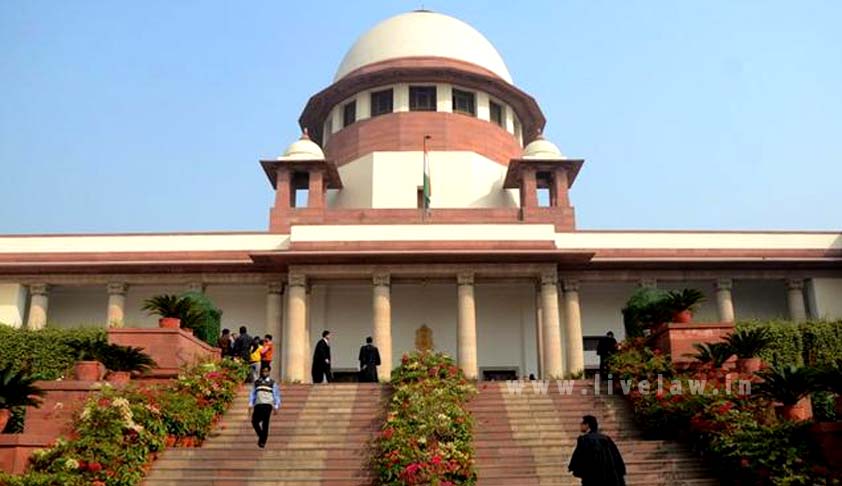General Exceptions under Indian Penal Code 1860 (Sections 76 to 106)
By Advocate Anik
Introduction
Certain people are exempted from the operation of criminal law, Chapter IV of the IPC is captioned as general exceptions. Any wrongdoer committing a crime (actus reus) with the requisite guilty mind (mens rea) can escape from the clutches of law because he comes under the category of general exception, these exceptions are however applicable to all offences IPC as well as non-IPC.
The first segment is that the law excuses certain category of people even when they commit a crime, and another segment is that the law justifies certain crimes because of the given circumstances. The following are the various general exceptions mentioned by the law.
Consult with: Top Lawyers of India
- Mistake of Fact – (Sections 76 and 79)
- Section 76 states that “Act done by a person bound, or by mistake of fact believing himself bound by law.” Which means that any act done in good faith which is bound by law or by mistake of fact not mistake of law then such an act will not constitute as an offence.
- For Eg. Mr. X with his military team are required to guard the borders of Indian by the order of a superior Mr. X shoots an intruder. Here Mr. X has committed no offence.
- The famous Maxim “Ignorantia facti doth excusat, ignorantia juris non excusat”- ignorance of fact is an excuse, but ignorance of law is not an excuse.
- Dakhi Singh v. state [1]– A police officer killed a suspected thief as he was resisting arrect here the police officer will not be protected under this section.
- Section 79 states that “Act done by a person justified, or by mistake of fact believing himself justified by law.”
- For Eg. John sees peter to commit a murder and john takes peter to the police station and it turns out peter was acting in self-defense here john commits no offence.
- Raj Kapoor Laxmam[2] The petitioner had obtained a certificate for public certification, they acted on the bona fide belief that the certification for public exhibition. They were therefore entitled to protection under this section.
- Judicial Acts – sections 77 and 78
- Section 77 states that “Act of Judge when acting Judicially” which means that it will not be considered as an offence if the judge is acting judicially and exercising his power in good faith.
- Sections 78 states that “Act done Pursuant to the judgment or order of the court”
- It should not only be an act of a judge, but it should also be done by him in the course of discharging his judicial powers.
- Ram Pratap Sharma v. Dayanand [3] If any judge addresses on political problems or controversies, the judge exposed himself to discussion by public. The judge in such a case cannot take shelter behind his office.
Talk with: Best Lawyers of India
- Accident and misfortune – sections 80 and 81
- Section 80 states that an act will not be considered as an offence if it is done by accident or misfortune and without any criminal intention or knowledge while doing the act.
- For Eg. Mr. Z is working with a Hatchet, the head of the hatchet files and kills a man near by now if Mr. Z took proper caution, such an act is excusable.
- State of Orissa v Khora Ghasi [4] The accused was watching his maize field when he heard some noise, he shot in that direction with an arrow thinking a bear had entered however it turned out to be a thief. The accused was acquitted.
- Sukhdev Singh v. Delhi Sate (Government of national capital territory of Delhi) [5] – The accused during a scuffle deliberately shot the deceased, here the supreme court declined the benefit of section 80.
- Section 81 – An act done which is likely to cause harm but just an act is only done to prevent greater harm without criminal intention when done out of necessity the same is justified by law (Doctrine of necessity)
- It embodies the principle “accused choosing lesser evil in order to avert greater harm, he will be immune under the same”
- Maxims – Quod necessitas non habet leegem: Necessity knows no law, Necessitas vincit legem: necessity overcomes the law.
- A in a fire pulls down houses in order to prevent the conflagration from spreading, here he will not be liable.
- Necessity as a reason for Homicide – United states V. Holmes [6] where the member of the crew during a shipwreck threw 16 slaves into the ocean fearing that the boat would sink, here he was convicted for manslaughter.
- Infancy – sections 82 and 83
Section 82 states that any act done by a child under the age of seven years will not be constituted as an offence.
Section 83 states that any act which Is done by a child above seven and under 12 who has not attained sufficient maturity such an act will not constitute as an offence.
Doli incapax: The child under seven years of age lacks the adequate ability to understand the nature and the consequences of his act and thereby the ability to form mens rea. The presumption is conclusive, it cannot be rebutted.
Quia militia supplet aetatem: malice makes up for age
Pratap Singh v. state of Jharkhand [7]
Gopinath Ghosh v. state of west Bengal [8]
Consult with: Top Lawyers of India
- Insanity- (section 84)
Section 84 Any act committed by a person of unsound mind will not be constituted as an offence, the penal law will not punish any man without a guilty mind (Mens rea) – (Furiosis nulla voluntas est) because a mad man is punished by his own madness (Furiosus furore sui puniter).
Law of insanity – M’Naghten case [9]
Daniel M’Naghten suffered from a delusion that the prime minister of Britain had injured him. He mistook the secretary for the Prime Minister and shot and killed him, here the accused was acquitted as he was insane.
Kinds of Insanity which is recognized under the law. Dementia naturalis (insane from birth), Dementia adventitia (individuals who become insane after birth), Hallucination or delusion, somnambulism (sleep walking) Irresistible Impulse, Mental agitation, annoyance and fury.
Insanity can also be caused by smoking Ganja or Heavy Intoxication -Must be at the time of the commission of the act.
However, a mere loss of self-control due to excessive drinking or smoking Ganja, any crime committed here it will not entitle him to the cloak of immunity under section 84. – Ajmer Singh v. state [10]
- Intoxication – (sections 85 and 86)
Section 85, If any person is intoxicated against his will or without his knowledge and commits any act incapable of his judgment, he will be protected under section 85 from criminal liability. Section 86, In case a person gets intoxicated voluntarily with his knowledge and if he commits any act in the state intoxication, he shall be liable and the law will deal with him as if he had the same knowledge as a sober person.
Bablu @Mabarik Hussain v state of Rajasthan [11] (the appellant under the influence of alcohol killed his wife and five children, the supreme court held that mere proof of intoxication will not acquit the accused, the accused is required to prove the alcohol was administered to him without his knowledge or against his will).
Voluntary Intoxication – Basdev v. state of Pepsu [12] – A retired military officer attended a marriage party, the officer voluntarily got drunk and was heavily intoxicated as he approached for his meal, he asked a young boy to step aside so he could occupy a convenient seat but since the child didn’t move the officer shot him with his pistol. Here because of voluntary intoxication the court held the accused guilty of murder.
Talk with: Best Lawyers of India
Burden of Proof is on the person who is seeking protection under this law, he must prove the intoxication was against his will or without his knowledge and he lost his mental equilibrium to distinguish between right and wrong. State of Orissa v. Kasabi Suba [13]
- Consent and Compulsion- (sections 87 to 94)
Volenti non fit injuria – Any harm caused with consent cannot be considered as a criminal offence. A doer is protected from criminal liability if he in good faith causes or takes risk of causing injury with or without the consent for the benefit of the sufferer
Illustration Mr. A and B agree for a sword fight, here if A unintentionally during the match injures B, A will not be liable because Mr. B gave his consent.
Section 90 defines what is consent, consent given under fear or misconception, consent of an insane person, consent of a child will be considered as irrelevant.
Section 87– State of Maharashtra v. Miss Joyee [14] – Every person is the judge of his own interest; no man will consent to what he thinks hurtful to himself.
Sections 88,89,92 -Corporeal punishment by teachers: M Natesan v. State of Madras [15] where a teacher exceeds the authority and inflicts such harm to the pupil as maybe considered to be unreasonable and immoderate, he would naturally lose the benefit of this section.
Sections 91 & 93 – Instances where the consent given does not absolve the wrong doer, Surgery for something illegal, Miscarriage and illegal transplant of Kidney.
Section 94 – actus me invito factus non est meus acts (Act to which a person is compelled by threats, instant death).
Who even under the threat of instant death participates in the commission of a murder will not get the benefit under this section? Paramhansa Jadab v. State [16]
- Trivial Acts – section 95
De minimis non curat lex: The law does not concern itself with trifles
Section 95 – Any act causing slight harm will not be constituted as an offence.
Bindeshwari Prasad Sinha v. Kali Singh [17] – The accused took away a certified copy of a judgement meant for the complainant by signing his name. the complainant obtained another copy and the court held that this case was covered under section 95.
Bichitrananda Naik v. State of Orissa [18]: the mustard oil which was being sold had components in it which was substandard. It was contended that the excess was trivial and should be covered under sec 95, the HC rejected this argument and held the accused liable under the Food Adulteration Act, 1955.
[1] Dakhi Singh v. State, AIR 1955 All 379: (1955) Cr LJ 905 (All) (DB)[2] Raj Kumar v Laxman, AIR 1980 SC 605: (1980) 2 SCC 175. Jayantila k Katakia v P Govindan Nair, AIR 1981 SC 1196: (1981) 2SCC 423: Ramesh chotalal dalal v UNI, AIR 1988 SC 775: (1988) 2 SCR 1011.
[3] Ram Pratap Sharma v. Dayanand, AIR 1977 SC 809: (1977) Cr LJ 579 (SC).
[4] State of Orissa v Khora Ghasi, (1978) Cr. LJ 1305 (Ori): 45 (1978) CLT 593.
[5] Sukhdev Singh v Delhi state (Government of National Capital Territory of Delhi), (2003) 7 SCC 441: AIR 2003 SC 3716.
[6] United states v Holmes, 26 Fed Cas 360 (1842) (Circuit Court, Eastern district, Pennsylvania).
[7] Pratap Singh v. state of Jharkhand (2005) 3 SCC 551: AIR 2005 SC 2731.
[8] Gopinath Gosh v. State of west Bengal, AIR 1984 SC 237: (1984) Cr. LJ 168 (SC).
[9] (1843) 8 Eng Rep 718.
[10] Ajmer Singh v state, AIR 1955 Punj 13 (DB): (1955) Cr. LJ 305 (H&P).
[11] Bablu @ Mabarik Hussain v state of Rajasthan, (2006) 13 SCC 116: AIR 2007 SCC 697.
[12] Basdev v State of Pepsu, AIR 1956 SC 488.
[13] State of Orissa v Kasabi Suba, (1978) Cr. LJ (NOC) 259 (Ori): State of Orissa v Matuka Barik, (1978) Cr. LJ (NOC) 260 (Ori)
[14] State of Maharashtra v Miss Joyee, (1975) 77 Bom LR 218.
[15] M Natesan v State of Madras, AIR 1962 Mad 216.
[16] Paramhansa v State, AIR 1964 Ori 144.
[17] AIR 1977 SC 2432: (1978) Cr. LJ 187 (SC).
[18] (1978) Cr. LJ 1050 (Ori).
Citations
- Criminal Law – PSA Pillai, 14th Edition K Vibhute.
- Indian Penal Code (45 of 1860) as amended by the Jammu and Kashmir Reorganization act,2019 (34 of 2019) (w.e.f. 31-10-2019) Bare act.
Disclaimer:
The information provided in the article is for general informational purposes only, and is not intended to constitute legal advice or to be relied upon as a substitute for legal advice. Furthermore, any information contained in the article is not guaranteed to be current, complete or accurate. If you require legal advice or representation, you should contact an attorney or law firm directly. We are not responsible for any damages resulting from any reliance on the content of this website.












